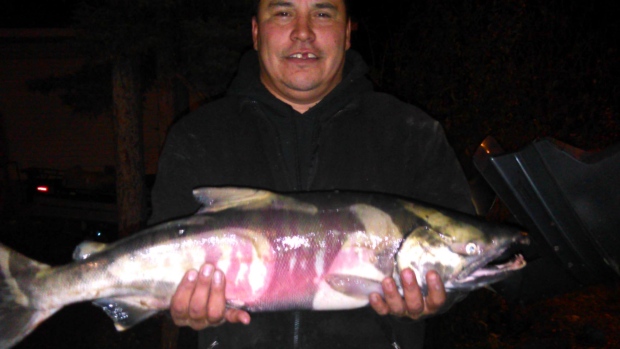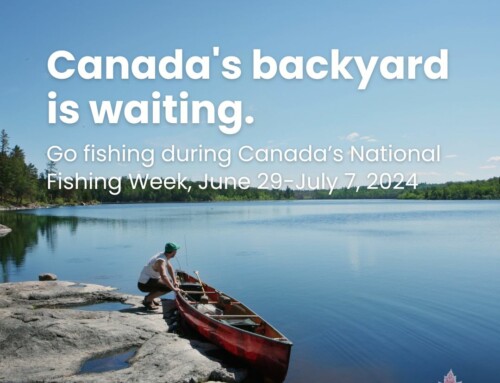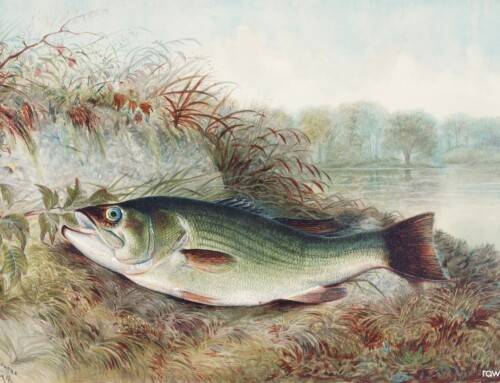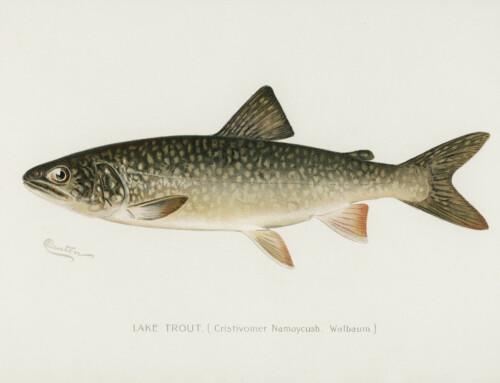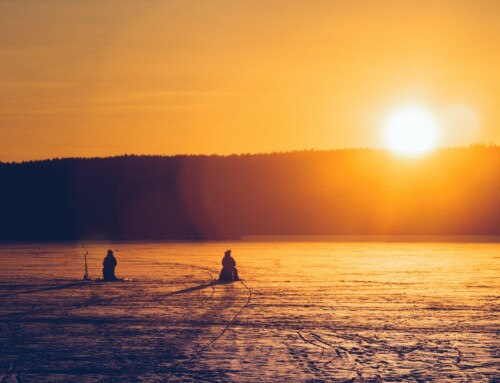‘It was a surprise for me,’ says Lorne Poitras, who caught the 10 kg fish Saturday night
Originally Published by CBC News, October 7, 2015
A Hay River, N.W.T., fisherman’s recent catch has left community members “shocked,” and a biologist suggesting that climate change may be affecting the migration patterns of fish in the North.
While net fishing at the mouth of the Hay River Saturday night, Lorne Poitras caught a 10 kg chum salmon — a species that’s not native to the N.W.T., much less the area.
The catch came as a surprise to Poitras, a self-described “traditional hunter and trapper” who was stocking up on fish for the winter months.
“I was pulling in my net,” he said, “and I was taking my fish out like I normally do. I thought I caught a trout at first.
“And as it got closer, I’m realizing: ‘Well, that’s not a trout!’ And then I looked, and I thought: ‘That’s a salmon!'”
Poitras said that he had heard of salmon being caught in Hay River before, but that “it’s something that doesn’t happen often, that’s for sure.
“I was talking with some elders on the Hay River Reserve,” he said, “and they said about 40 years ago, someone caught a salmon in the Hay River.”
Poitras shared a photo of his unusual catch on Facebook, which “shocked” community members, he said.
“They were about as surprised as I was,” he said with a laugh.
‘It’s an access issue, and also an opportunity issue’
However, a PhD candidate at the University of Manitoba says that salmon numbers in the N.W.T. are increasing, likely due to the effects of climate change.
“They are certainly rare, but they’re definitely not unheard of,” said Karen Dunmall, who’s studying the salmon population in the territory. “This isn’t the first salmon harvested in Hay River… there are some records of salmon in Hay River in the past.”
Dunmall said that despite year-to-year fluctuations, the number of salmon in the N.W.T. are generally increasing, saying that ‘it’s an access issue, and also an opportunity issue.
“There’s a couple of things that may be going on,” she said. “There is a possibility of increased access of salmon to the Mackenzie River system, or, possibly, there are spawning populations of salmon in the Mackenzie River, and changes may be occurring that allow increased populations to survive.”
Salmon enter the N.W.T.’s watershed system from the Arctic Ocean, says Dunmall, and the increased access could be due to warming temperatures, which lead to earlier melts each spring.
“You go back to the climate change issue,” she said. “The salmon may be indicating changes that are occurring — broader changes across the Arctic.”
Dunmall, who is working with the Department of Fisheries and Oceans, said that so far, her research has only documented increased access for salmon in the territory, but said that it’s possible salmon may be in the territory “looking for new areas to spawn in.
“They need areas in the Arctic that don’t freeze,” she said. “They’re not common, and they’re associated with groundwater springs.”
The Department of Fisheries and Oceans offers a reward for salmon caught in the Mackenzie River system, but it won’t be going to Poitras, who says that he ate half of his unusual catch, “and the other half is smoking right now.
“It was very good,” he said, laughing. “Me and the family really enjoyed it.”
Photo courtesy of Rina Fabien.

